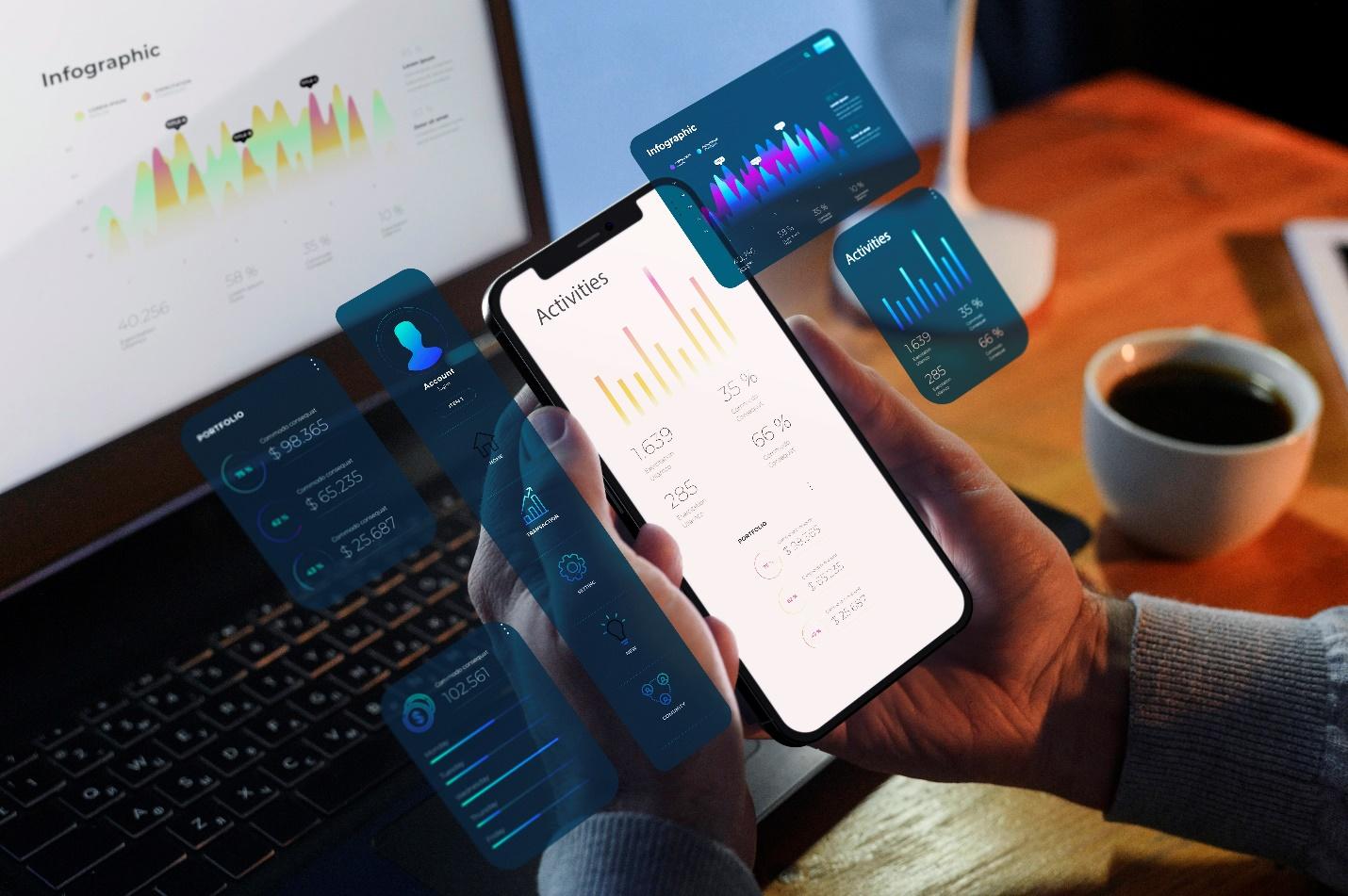We use mobile phones daily, which have become part of our lifestyle, improving many tasks. But what exactly do we utilize mobile apps for? Well, now mobile apps can be used to communicate, find out new information, learn a language, and so on. And guess what? You also have mobile apps to help you better manage your finances and track your expenses.
Financial mobile apps offer access to convenient, seamless, and accessible financial services, which is something individuals are looking for. So, now, you can download a financial app to create budgets, invest, and transfer money. You can also find vital information by downloading mobile apps, including the most important data about cryptocurrency. Mobile apps can also help you navigate the transaction world, which sometimes can be challenging and implies complex processes. But apps can guide you better in everything you want to do, whether you wish to buy Bitcoin with credit card, or discover how to put money aside for emergencies.
Here are all the advantages that mobile apps can help us benefit from better financial management.

Image source: https://www.freepik.com/free-photo/representation-user-experience-interface-design_94963709.htm#fromView=search&page=1&position=8&uuid=f72a492a-c38d-4fe3-b10b-fa88a8d3dc30
Improve customer convenience
The best advantage of mobile apps in the financial sector is that they can improve user experience by offering quick access to various services and bringing unparalleled convenience. Financial services can be quite challenging for users, as they have notions not many can understand. However, things can change when we talk about financial mobile apps because they improve these processes with intuitive designs and seamless navigation. In this way, you can finally say goodbye to the complex financial tasks and have the best allies who will help with fund transfer, account management, and bill payments.
Even if financial services are available on mobile phones, this doesn't mean they are not secure, as companies in the financial sector have considered the best ways to improve security, including by offering facial or fingerprint recognition. With the help of mobile financial apps, you can have better insight into your finances as you receive real-time updates on transaction histories, money flow, and account balances.
With financial apps, you get the chance to access mobile banking at any time of the day and make contactless payments. In short, your mobile apps provide anything you need to enjoy a little more freedom in the financial sector.
Enhance operational efficiency
Mobile apps can also lead the way to better operational efficiency because they replace time-consuming tasks and automate plenty of services. In the past, you needed to go to a physical financial institution and wait in a long queue to access your accounts and make a transaction. But now, that is not the case anymore, as mobile apps have truly contributed to streamlining customer service, account management, and transaction processing.
Plus, with the help of mobile apps, employees working in the financial sector can finally allocate more time to more critical tasks, improving financial companies' operations worldwide.
Brings more security into the financial sector
Financial companies should always ensure they offer the best services to their customers, including high security. Luckily, mobile apps have taken security to the next level, helping in fraud prevention and data protection. Financial apps come with robust security measures, such as multi-factor authentication and encryption protocols, that remove unauthorized access, reduce data breaches, and safeguard sensitive information.
Financial institutions must always respect the regulations and constantly improve their apps to ensure they remain safe and patch any vulnerabilities. Mobile apps use plenty of amazing features to improve security, such as end-to-end encryption, biometric or multi-factor authentication, and tokenization. For example, biometric authentication uses biometric data, including facial recognition, fingerprints, or iris scans, to ensure that the person trying to access financial services is indeed the owner of those accounts.
Provides real-time data management
With the help of financial mobile apps, you can also receive data in real time, which helps you plan your finances better, detect irregularities, and track your expenses. This will also allow you to make more accurate and quicker decisions, as you can analyze trends in the financial market or opt for personalized services. In this way, you can detect fraudulent activities, keep track of market changes, or improve efficiency in operations.
Financial mobile apps come with account updates that let you see your balances, withdrawals, deposits, and pending transactions. They can also help you offer the best financial planning tools, such as investment analyzers, budgeting calculators, goal-setting features, and retirement plans.
Offers financial inclusion
Mobile apps can also lead the way to financial inclusion because they offer accessible, convenient, and cost-effective financial services to everyone, including those who don't have the possibility to access traditional banking services. Mobile apps can also be great solutions for individuals living in remote areas, who might find it challenging to go to physical banks to access their accounts. However, with the help of financial apps, anyone can pay their bills and make transfers, thus bridging the gap between individuals worldwide.
The bottom line
Mobile apps have forever improved human lives, offering everything people need. Now, there is an app for each small thing an individual could want, and in this variety, there is also something from the financial sector. Mobile apps have brought plenty of advantages to the financial industry, and they have taken accessibility to another level by offering instant access to financial information or banking services.
Mobile apps can enhance customers' experiences worldwide and offer personalized solutions to individuals. They also come with automation, which improves efficiency to a great extent and frees up some of the tasks of employees working in the financial sector.
What do you think about mobile apps in the financial sector? Do you use them? If so, which one?